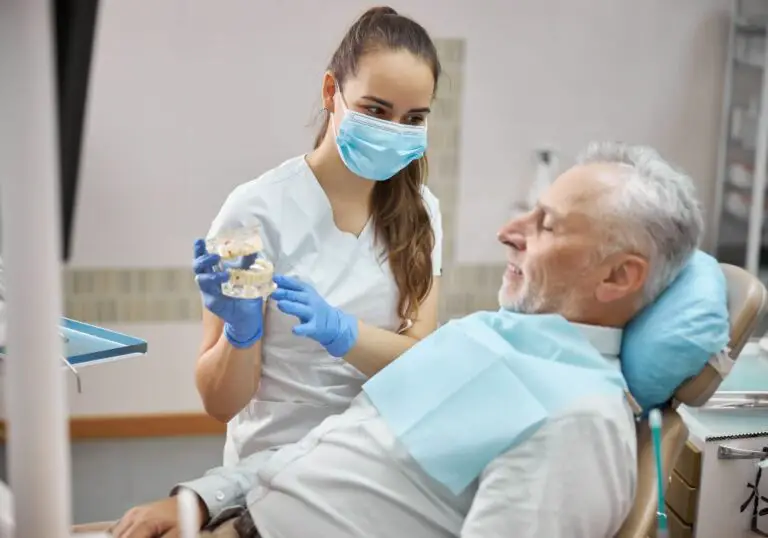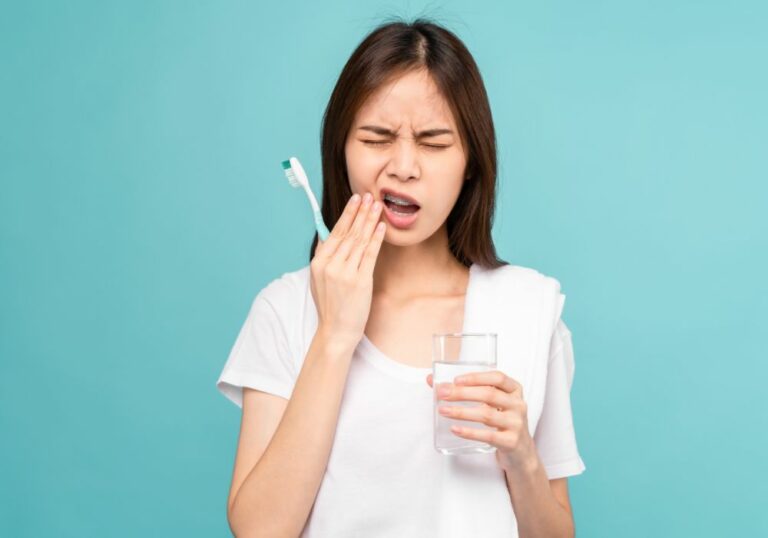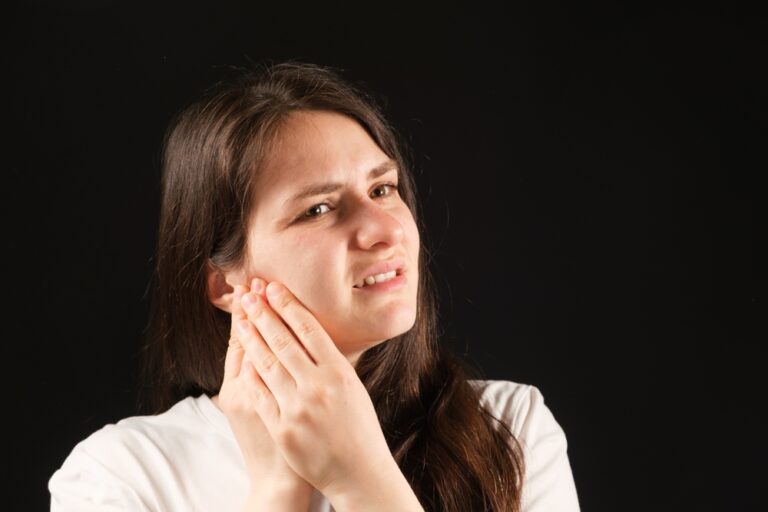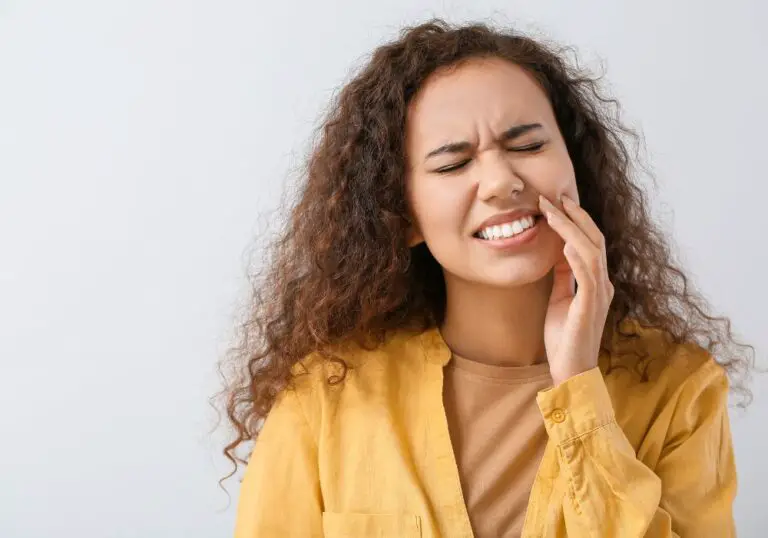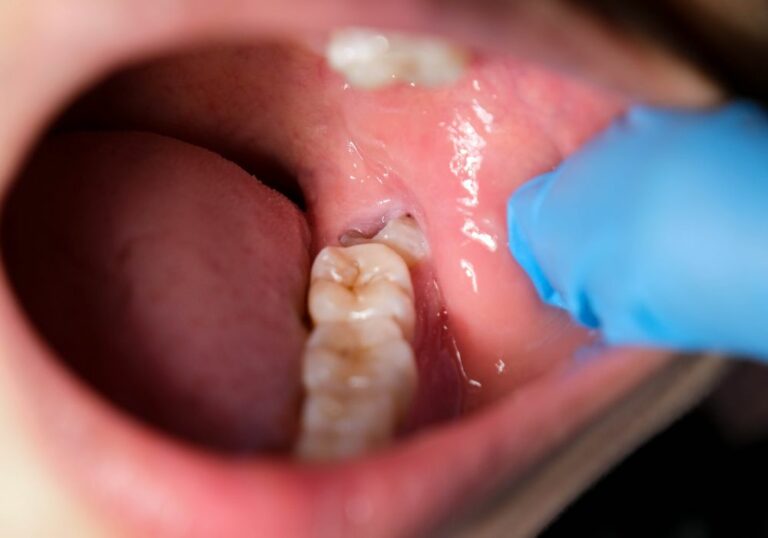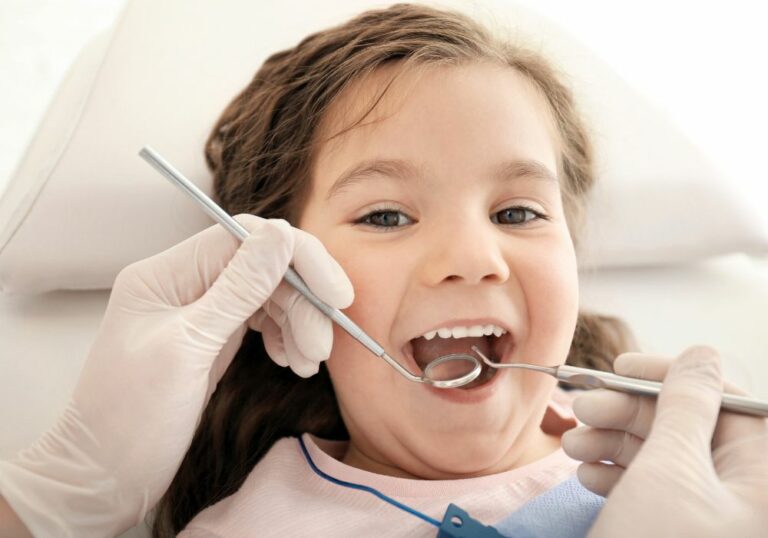For a lot of people, getting a dental cleaning isn’t something we usually associate with pain. Some mild discomfort perhaps, but rarely pain. This isn’t the case for all of us, however, as there are folks with severe enough gums and teeth sensitivity that pain after a dental cleaning is an ever-present risk, regardless of how careful and gentle your dentist is.
So, what can you do in those situations? Just skip your scheduled teeth cleaning? Or are there ways to get rid of the pain quickly? Here are our tips for how to relieve pain after teeth cleaning.
Why Do Your Teeth Hurt After Teeth Cleaning?
It’s perfectly normal to wonder why a teeth cleaning procedure hurts. Did the dentist accidentally press too hard? Have they harmed your teeth? The answer to both is almost certainly a no. However, the reason teeth cleaning can hurt – especially deep teeth cleaning and root planing – is that it aims to remove all bacteria, plaque, and tartar buildup off the surface layer of your teeth.
This is done to protect your tooth’s enamel from the destructive potential of plaque buildup which tends to eat away at the surface enamel layer of our teeth – that’s what causes tooth sensitivity, inflammation, infection, periodontitis, and, eventually – tooth decay.
The problem with all of this is that, if the plaque and tartar buildup has already harmed your teeth’s enamel, that means that the dentil layer underneath the enamel is already partly exposed. Dentin is the layer next to the enamel that protects the nerve tissue below. And, unlike enamel, dentin is a lot more sensitive and it can hurt during and after a teeth cleaning procedure.
To put it another way – if your teeth hurt after a teeth cleaning, that’s likely because you really needed your teeth cleaned in the first place and your enamel layer has already suffered the effects of plaque. Alternatively, you may just have overly sensitive gums and teeth which a lot of people just have naturally. However, while that makes teeth cleaning procedures more painful, it doesn’t make them any less necessary.
Can deep cleaning actually harm your teeth?

When talking about pain after teeth cleaning, we’re almost always talking about deep cleaning or scaling and root planning. If your teeth genuinely hurt for more than half an hour or so after a normal (not deep) teeth cleaning procedure, then they certainly are overly sensitive but the discomfort is bound to pass eventually.
What about deep cleaning, however – can the extra discomfort and pain from that procedure be a symptom of actual damage done to your teeth?
Not really. Deep teeth cleaning does come with a couple of inherent risks that counteract its many benefits. Cases of actual “damage” are incredibly rare, however. Instead, the main occasional drawbacks of deep teeth cleaning include:
- The very pain and discomfort that has likely brought you to this article
- A small risk of a gum infection if you haven’t taken good care of your gums immediately after the procedure
- A risk of gum recession – usually a major risk only after frequently repeated procedures and/or if the deep cleaning wasn’t performed too well
- Some risk of nerve damage in very rare cases – typically when the dentin layer was overly exposed
Of these risks, the latter can indeed be seen as actual physical damage to your teeth. This is definitely a very rare occurrence, however, and most dentists easily avoid it by recognizing that the patient’s teeth are overly sensitive and vulnerable to dentin damage ahead of time.
Does this mean that if you’re feeling pain in your teeth after deep cleaning, that’s because the nerves under the dentin in your teeth have been damaged? No, in the vast majority of cases, the pain and discomfort won’t be indicative of any damage.
Are there less painful alternatives to teeth cleaning?
Unfortunately, there is no procedure that’s quite as good at cleaning your teeth and preventing gum disease as deep teeth cleaning. The lighter teeth cleaning procedures are seen as mostly cosmetic as they don’t go as deep near and under the gums as deep cleaning does.
Brushing and dental floss are, of course, important, but even the most thorough brushing and flossing routine isn’t a sufficient replacement for routine deep teeth cleaning procedures done by a qualified dental hygienist. Even kinds of toothpastes marketed as “deep cleaning” don’t really compare to an actual deep cleaning procedure.
What does this mean if your teeth are too sensitive to tolerate deep cleanings or if your dentist outright tells you to avoid the procedure, however?
Well, in most cases, your dentists will likely still recommend the procedure even if your gums and teeth are overly sensitive – that’s just how beneficial deep cleaning is. There are some additional options such as administering a local anesthetic or laughing gas before the procedures.
Those will alleviate the pain and discomfort during (and shortly after) the procedure but you’ll still need to find a way how to relieve the pain after the teeth cleaning. So, let’s explore that next.
How to Relieve Pain After Teeth Cleaning?
So, what can you do if you are one of those unfortunate few to feel major pain in your teeth after teeth cleaning? Obviously, just not doing the procedure is not a good idea as teeth cleaning – especially deep teeth cleaning and root planning is the best protection we have against the periodontitis gum disease.
So, here’s how you can alleviate the pain and discomfort for a couple of days until the body’s healing process does its job and things go back to normal:
- Wait a day or more before brushing and flossing your teeth after the deep cleaning – while those are typically must-have parts of any good oral hygiene, you can skip them for the first 24 hours if your teeth hurt.
- Use soft-bristled toothbrush – When you start brushing again, make sure that you’re using a good soft-bristled toothbrush that’d be gentle to your teeth and gums. With it, you can be just as effective while brushing, remember that it’s better to brush longer but gentler than faster but harsher.
- Use a fluoride desensitizing toothpaste for sensitive teeth and gums – ideally, one with potassium nitrate as those tend to provide the most relief.
- Avoid overly cold or hot foods and drinks – While we’re on the subject, you’d also want to avoid foods and drinks that’d color your teeth such as coffee, red wine, berries, chocolate, and so on.
- Try gently washing your mouth and gargling with warm water with honey or a warm saltwater solution. This will not only help wash your teeth but it will also calm the inflammation down. Plus, water generally helps restore the minerals on your teeth’s enamel. You can also try using an antimicrobial mouthwash to reduce the inflammation and swelling of the gums and clean them properly.
- Use pain medications – If you’re gums and teeth hurt too much, your dentist may also prescribe certain pain medications, many of which you can also buy over the counter. These include but are not limited to Ibuprofen, Advil, Tylenol, Motrin, Acetaminophen, and others.
Do consult with your dentist when you’re buying an over-the-counter pain reliever, of course. Always follow the medication’s and your dentist’s instructions, and don’t go over the recommended dose. If the situation is particularly bad and your immune system is compromised, your dentist may prescribe you antibiotics. This should be a very rare occurrence, with such dental procedures, however, and antibiotics aren’t something that’s taken for granted.
How long does it take for teeth to stop hurting after cleaning?
For most people, the recovery time after even the most intensive deep teeth cleaning is about two days or so. There are some rare cases of extra-long recovery times but those are exceptionally uncommon. If the pain hasn’t passed away after a couple of days, you should consult with your dentist. However, if something is genuinely wrong, your dentist likely would have noticed it while doing the procedure.
In Conclusion
Dental hygienists perform thousands of teeth cleanings over the course of their careers and there’s little that can surprise hygienists that’ve been doing teeth cleanings for even just a couple of years. This isn’t meant to minimize your pain, however, but as a reminder that whatever your dentist is recommending for your particular situation is likely the right move.
Pain and discomfort are unfortunate after a teeth cleaning but they are not all that uncommon. So, the good news is that dental professionals are quite familiar with the issue and know how it should be approached.

